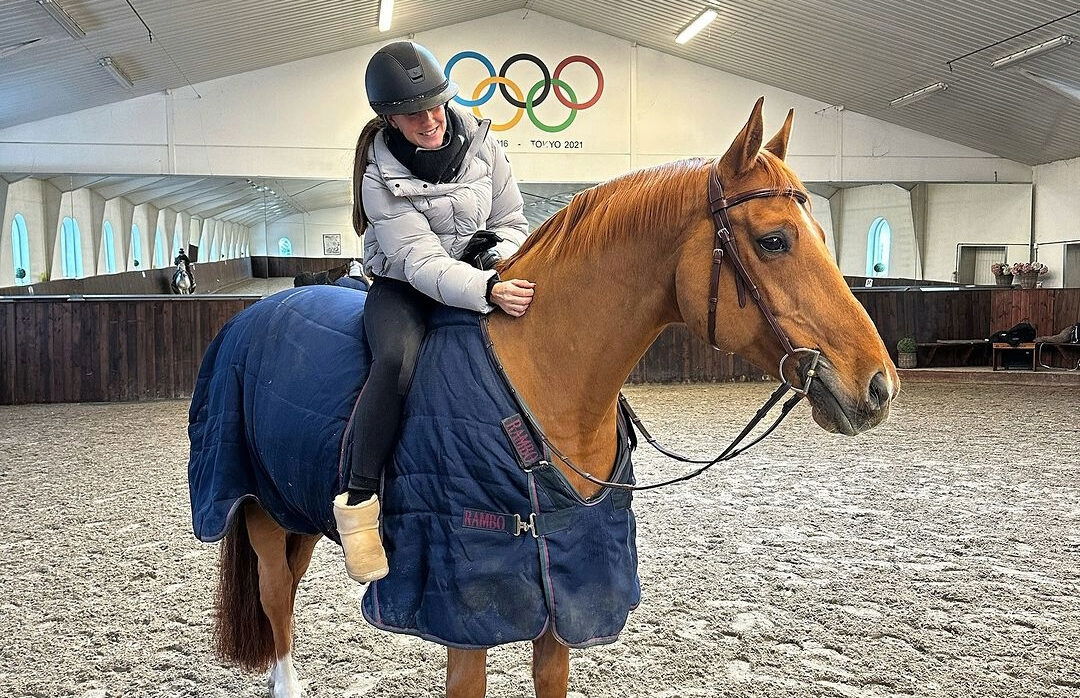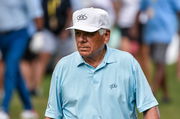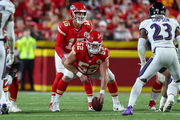

If equestrian sports feel like a tale as old as time, that’s because it is. The event was first a part of the ancient Olympic Games in 680 BC. Back then, chariot racing and horseback riding were integral parts of the Summer Games. However, as time went by, the event was modified to fit the current times. At the 1900 Paris Olympics, equestrians featured in four different disciplines: the high jump, long jump, hacks and hunter (combined), and mail coach. Even though the next two Summer Games didn’t feature the event, it was reintroduced at the 1912 Olympics with the addition of individual dressage, eventing, and team jumping.
Watch What’s Trending Now!
But is it an Olympic sport? Yes, it is; it became a permanent fixture at the 1912 Paris Olympics. The IOC had to decipher which sports would be a part of the Summer Games that year. After drawing a list of sports that should be optional and obligatory, it was decided that equestrian is worthy of being an Olympic sport. Now that we’ve answered that question, let’s find out more about the only Summer Games event that involves an animal.
ADVERTISEMENT
Equestrian’s Olympic history over the years
The 1912 Stockholm Olympics saw the home team perform strongly, securing multiple medals in equestrian events. The Dutch had a notable performance at the 1928 Amsterdam Summer Games, clinching several medals in equestrian disciplines. The first time a nation dominated the equestrian events by winning all six gold medals was during the 1936 Berlin Olympics. The German team delivered a spectacular performance, with Lt. Konrad von Wangenheim famously competing despite a broken collarbone, contributing to Germany’s overall success. It truly made for a thrilling spectacle!

ADVERTISEMENT
Up until the 1948 London Summer Games, equestrian events were exclusively for men. For the first time during the 1952 Helsinki Olympics, mixed events were introduced. Lis Hartel etched her name in the history books by becoming the first woman to win an Olympic medal in the sport, securing a silver in dressage. Throughout the history of the modern Summer Games, Germany has won a total of 52 Olympic medals in equestrian events, with their count the highest among all nations.
ADVERTISEMENT
Learn about Equestrian events: Dressage, Jumping, and Eventing
The sport started with four events but was streamlined to three core disciplines that we will witness at the upcoming Summer Games. At the historic Chteau de Versailles, several nations will participate in dressage, eventing, and jumping events from July 27th to August 6th.
Top Stories
Lee Trevino, 86, Leaves Golf World Hanging on Every Word at PNC: ‘I’ve Been Digging Worms’

Blue Jays Confirmed to Land MLB’s “Big Fish” After Mark Shapiro Fires Bold Message to Clubhouse, per Insider

Kansas City Mayor Sends Strong Message to Clark Hunt After Chiefs Confirm Arrowhead Exit

Chiefs Announce Relocation From Missouri to Kansas to Build New Stadium

Paige Spiranac Shares Her Mom’s Honest Views on Controversial Career Decisions

LIV Golf Issues Statement as Pro Announces Shock Retirement After Getting Relegated

Dressage is often described as “horse ballet,” where horse and rider perform a series of predetermined movements with precision and grace. Isabell Werth, known as the queen of dressage, has a total of 12 Olympic medals, making her one of the most decorated athletes in Olympic history. She could potentially become the woman with the most gold medals in the history of the Olympics.
ADVERTISEMENT
Eventing combines three disciplines: dressage, cross-country, and show jumping. It tests the versatility, endurance, and skill of both horse and rider. Germany remains strong in eventing, with reigning Olympic champion Julia Krajewski looking to defend her title.
Jumping (Show Jumping) involves navigating a course of obstacles within a set time, testing the horse and rider’s precision, speed, and agility. Henrik von Eckerman enters the Paris Summer Games as a favorite in the jumping events. Despite his numerous World Cup golds, he is still seeking his first individual Olympic gold. With his horse, King Edward, he aims to complete his ever-growing collection in the French capital. In eventing, Germany still stands strong, with their reigning Olympic champion Julia Krajewski looking to defend her title.
ADVERTISEMENT
What do Equestrian terms like eventing, bridle, girth, and the rest mean?
If you’re an avid Olympics fan but unsure of what certain equestrian terms mean, this might help! You might be wondering how a rider controls their horse. Well, they do it with a bridle, a piece of tack placed on the horse’s head that includes reins, a bit, and headgear. Even though many call the sport “equestrian,” the term is ideally used to describe someone who interacts with or rides horses. You’ve probably heard of the term gallop, but did you know that it’s used to describe one of the horse’s gaits, or how they travel? There are four main gaits: walk, trot, canter, and gallop.
For the saddle to stay on the horse, a strap is secured around the horse’s belly. This strap is commonly called a girth (in English riding) or a cinch (in Western riding). So, what’s eventing? It’s a competition that combines three disciplines: dressage, cross-country, and show jumping. Now that you know what some of these terms mean, let’s take a look at a darker period of the sport.
ADVERTISEMENT
Was there an Olympic Equestrian ban?
Although equestrian events remain part of the Olympics, the treatment of horses in the sport has faced criticism. In 2020, a video emerged showing Britain’s 3x Olympian champion Charlotte Dujardin allegedly mistreating a horse during training, with reports suggesting she used the whip excessively, almost 24 times during a training session. This incident led to significant public backlash and calls for stricter measures to ensure the welfare of horses in equestrian sports.

ADVERTISEMENT
Animal welfare organizations, including PETA, have highlighted this issue to push for tougher regulations and, in some cases, the removal of equestrian events from the Olympics. Kathy Guillermo, Senior Vice President of PETA, has publicly urged the International Olympic Committee (IOC) to reconsider the sport’s place in the Games, stating, “The message to the IOC should be clear by now: remove equestrian events from the Olympic Games.”
Charlotte Dujardin has expressed regret for her actions, describing them as a mistake. “What happened was completely out of character and does not reflect how I train my horses or coach my pupils,” she expressed in her statement. After the footage was sent to authorities, the Olympian expressed how deeply ashamed she was for making an error of judgment during the coaching session. In light of recent events, she promptly took a step back from Team GB. She also stepped back from public events and then received a six-month suspension from the Fédération Equestre Internationale (FEI). As a result, she will not compete in the Paris Olympics. Dujardin has stated that the incident was out of character and does not reflect her usual training practices. While this is an unfortunate blip in the majestic sport’s history, we will witness yet another spectacle at the Summer Games. Will you be watching?
ADVERTISEMENT
ADVERTISEMENT
ADVERTISEMENT
ADVERTISEMENT

